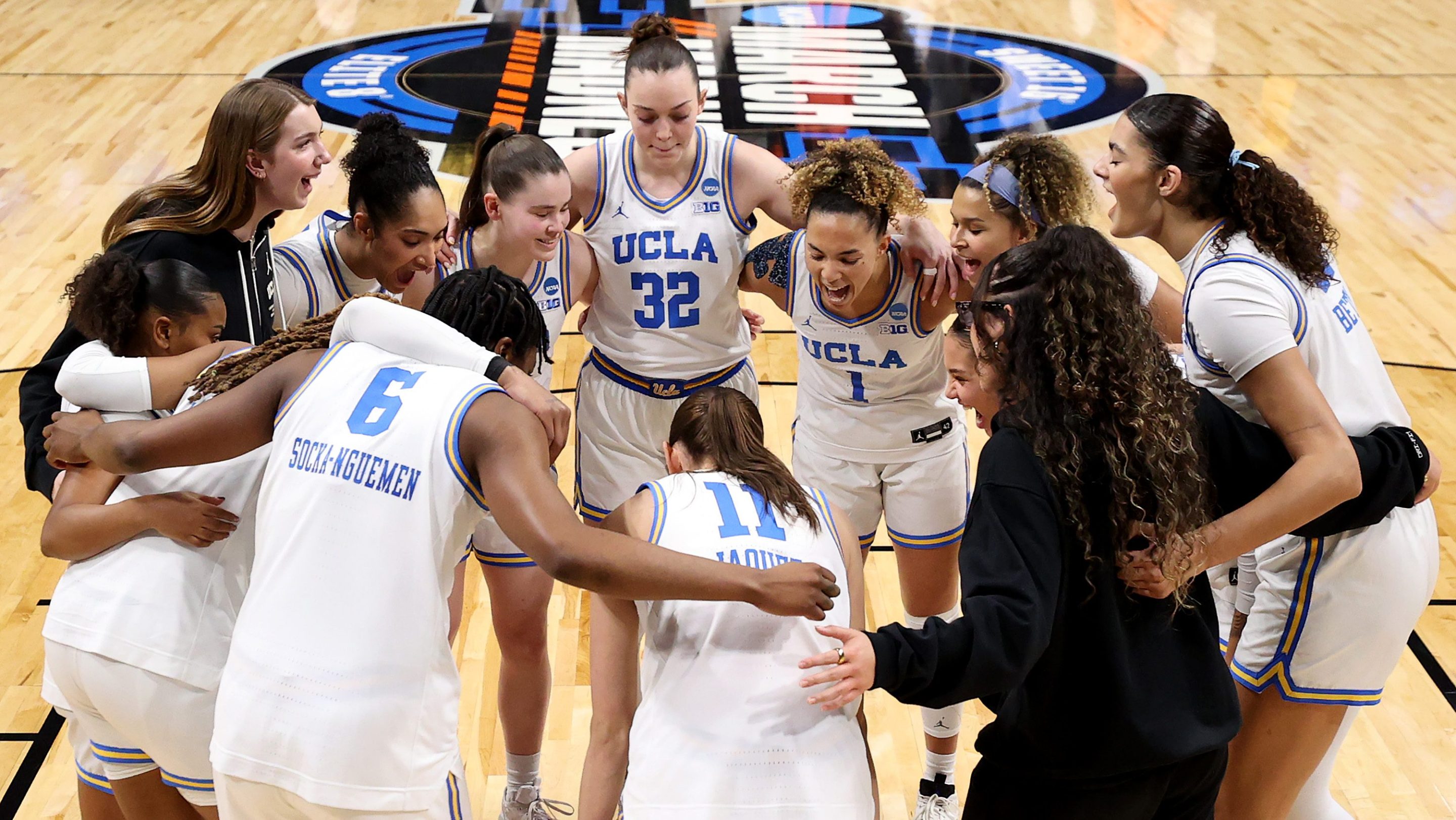UCLA chose an odd way to muscle itself into its first women's Final Four: by seeing its muscle get into early foul trouble and having her sit out the entire second quarter. This would surely be LSU's moment as the very live and historically imposing three-seed in a tournament full of chalk.
Instead, the Bruins somehow managed to be better without center Lauren Betts than they were with her, as counterintuitive as that seems, building themselves a workable lead that they could then safely defend through the second half, when Betts returned to re-establish her place in the game's highlight reel. In all, it was a structurally odd way for the Bruins to finally break through the bracket ceiling, but the final score of 72-65 was an accurate portrayal of the difference between the two teams.
With that, this Final Four, which is still just half-plotted, looks like a monument to the power of chalk; the men have already filled out their weekend with all four top seeds advancing for just the second time in tournament history, and the women are halfway there.
But that's the odd thing about UCLA's performance. They didn't really project as a top seed on Sunday, if only because (a) they'd gotten to the round of eight just twice in the program's history, and (b) because LSU coach Kim Mulkey always gives off a one-seed aura with that glare, voice, and fashion statements that can all draw sweat from granite.
That's all historical baggage, though, in an event that relies heavily on reverence to blue-blood programs and coach-centric operations. UCLA had Betts, who has been one of the best players in the tournament to date, and they had coach Cori Close, who finally pulled the program free of the oppressive imagery of the men's team and made the Bruins a national force on their own. At least as much of a national force as making six second-weekends without the payoff can, anyway. In a world where experience pays (ask Mulkey about that if you think you can approach safely), the Bruins are the most deserving of newbies.
Indeed, there were profound complaints that USC, which beat UCLA twice (the Bruins' only losses) got short-shrifted by the women's committee and their seeding Ouija. Being 30-2 hadn't gotten the Bruins the cachet they might have figured they'd earned on their own, so they would have to do it as that strangest of entities—the seemingly undervalued one-seed.
Shows what we know. Betts's second foul 59 seconds before the end of the first quarter seemed to cement that sense, but soon enough Timea Gardiner and Gabriela Jaquez opened the floor in the second quarter with a series of threes, taking a lead that LSU could never take back, followed by Londynn Jones and Jaquez hitting two early threes in the third quarter to push the lead to double digits. That lead thinned over time because of Flau'jae Johnson's fear-free 28 points but never actually disappeared, and Betts played boldly enough in the second half to keep LSU from crowding her teammates at the arc. It was a grinder's game, and UCLA was better at the grinding when it mattered most.
The win advances UCLA to a national semifinal Friday against the winner of the Southern Cal-Connecticut game, which was supposed to be the JuJu Watkins-Paige Bueckers game for name-and-game-reductive fans everywhere. What it turns out to be now that Watkins has a crumpled knee is anyone's guess, as the women's game continues to absorb new nationally prominent programs. If USC and Texas (which plays TCU) both win Monday night, all four No. 1s will play next weekend for the fifth time in history, which means that all eight No. 1s will survive the first two weekends for the first time ever. With all that chalk, three of the four teams will swagger in, secure in the knowledge that they've been there before. And UCLA will act like it has been there forever.






